-
 Bitcoin
Bitcoin $91,256.3033
3.39% -
 Ethereum
Ethereum $1,723.5244
5.98% -
 Tether USDt
Tether USDt $1.0006
0.10% -
 XRP
XRP $2.1808
2.69% -
 BNB
BNB $611.6352
1.26% -
 Solana
Solana $145.2440
4.71% -
 USDC
USDC $1.0001
0.07% -
 Dogecoin
Dogecoin $0.1726
6.92% -
 TRON
TRON $0.2472
1.71% -
 Cardano
Cardano $0.6638
3.44% -
 Chainlink
Chainlink $14.0337
4.16% -
 Avalanche
Avalanche $21.8740
6.44% -
 UNUS SED LEO
UNUS SED LEO $8.9676
-1.35% -
 Stellar
Stellar $0.2598
-0.15% -
 Sui
Sui $2.4368
8.47% -
 Shiba Inu
Shiba Inu $0.0...01309
4.18% -
 Hedera
Hedera $0.1782
3.94% -
 Toncoin
Toncoin $2.9908
-0.39% -
 Bitcoin Cash
Bitcoin Cash $361.0314
4.64% -
 Hyperliquid
Hyperliquid $18.8127
3.63% -
 Litecoin
Litecoin $82.7354
3.19% -
 Polkadot
Polkadot $3.9250
0.37% -
 Dai
Dai $1.0001
0.03% -
 Bitget Token
Bitget Token $4.5168
0.88% -
 Ethena USDe
Ethena USDe $0.9994
0.01% -
 Pi
Pi $0.6419
0.67% -
 Monero
Monero $219.7573
2.35% -
 Pepe
Pepe $0.0...08517
7.03% -
 Uniswap
Uniswap $5.6768
4.46% -
 Aptos
Aptos $5.1717
0.94%
What is the difference between an Ethereum ETF and directly holding Ethereum?
Factors to consider when choosing between Ethereum ETFs and direct Ethereum holdings include investment goals, risk tolerance, and the desired level of diversification and flexibility.
Feb 16, 2025 at 11:12 pm

Key Points
- Ethereum ETFs offer diversification, lower risk, and regulated access.
- Direct Ethereum holdings provide higher potential returns, customization, and flexibility.
- Considerations include investment goals, risk tolerance, and holding strategies.
Understanding Ethereum ETFs
- Diversification: ETFs provide exposure to a basket of assets, including Ethereum, reducing overall portfolio risk.
- Lower Risk: ETFs are regulated, managed by professionals, and provide transparency. Compared to direct Ethereum trading, ETFs offer less volatility.
- Regulated Access: ETFs are traded on exchanges regulated by the SEC, providing legal and compliance protection.
Benefits of Direct Ethereum Holdings
- Higher Potential Returns: Direct Ethereum ownership allows investors to fully benefit from potential price appreciation.
- Customization: Investors have complete control over their Ethereum purchases, including amount, timing, and storage methods.
- Flexibility: Direct holdings can be used for various purposes, such as staking, trading, or long-term investment.
Considerations for Decision-Making
- Investment Goals: Determine if you prioritize diversification and lower risk (ETF) or higher potential returns and flexibility (direct holdings).
- Risk Tolerance: Assess your ability to withstand market volatility and potential losses.
- Holding Strategies: Consider your preferred storage methods, trading frequency, and long-term investment horizon.
FAQs
1. Which Ethereum ETF should I invest in?
There are various Ethereum ETFs available, each with varying underlying assets, fees, and market performance. Research and consider your investment goals and risk tolerance before making a decision.
2. How do I buy Ethereum without an ETF?
You can purchase Ethereum directly through cryptocurrency exchanges such as Coinbase, Binance, or Kraken. Ensure you compare fees and security measures before selecting a platform.
3. Is it better to hold Ethereum or an Ethereum ETF?
The decision depends on individual preferences and circumstances. ETFs offer diversification and lower risk, while direct holdings provide higher potential rewards and flexibility. Consider your investment goals, risk appetite, and holding strategies.
4. How much Ethereum should I invest in?
Invest only what you can afford to lose and diversify your portfolio to reduce risk. The amount of Ethereum to invest depends on your financial situation, investment goals, and risk tolerance.
5. What are the risks of investing in Ethereum?
The cryptocurrency market is volatile and subject to market conditions, regulatory changes, and security breaches. Before investing, understand the potential risks and take appropriate precautions.
Disclaimer:info@kdj.com
The information provided is not trading advice. kdj.com does not assume any responsibility for any investments made based on the information provided in this article. Cryptocurrencies are highly volatile and it is highly recommended that you invest with caution after thorough research!
If you believe that the content used on this website infringes your copyright, please contact us immediately (info@kdj.com) and we will delete it promptly.
- Launch of The Echo exchange and its native token, ECHO
- 2025-04-22 23:00:11
- 1933 penny coin could be worth a life-changing sum of money
- 2025-04-22 23:00:11
- ArchVM Launches a Test Version of Its Bitcoin Virtual Machine, Raising $10M in Funding
- 2025-04-22 22:55:13
- Both gold and Bitcoin (BTC) have extended their gains since yesterday
- 2025-04-22 22:55:13
- Mantra (OM) token crash requires a detailed forensic study, not just basic blockchain analysis
- 2025-04-22 22:50:11
- US Bitcoin (BTC) Exchange-Traded Funds (ETFs) Experience Their Largest Single-Day Net Inflow
- 2025-04-22 22:50:11
Related knowledge
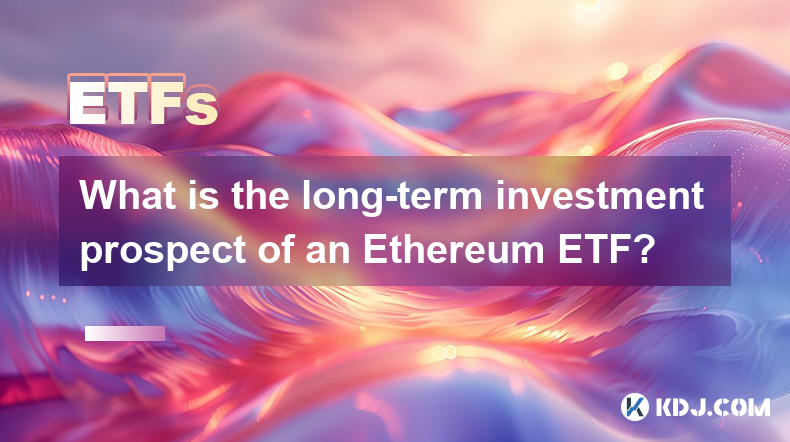
What is the long-term investment prospect of an Ethereum ETF?
Mar 18,2025 at 03:01pm
Key Points:Uncertainty surrounds the long-term prospects of an Ethereum ETF due to regulatory hurdles and market volatility.Approval hinges on regulatory clarity regarding cryptocurrencies, especially concerning investor protection and market manipulation.Successful ETF launches could boost Ethereum's price and adoption, but failure could negatively imp...
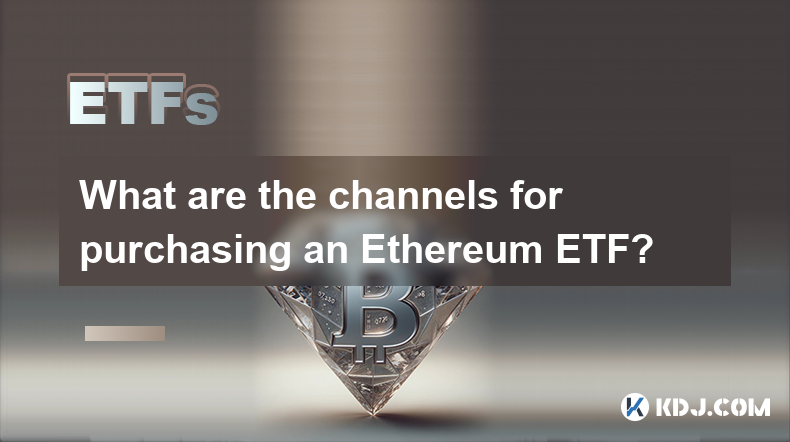
What are the channels for purchasing an Ethereum ETF?
Mar 18,2025 at 01:49am
Key Points:Currently, there are no Ethereum ETFs available for direct purchase by the general public in most major markets.Access to Ethereum exposure through ETFs is limited, mainly through futures-based ETFs.Purchasing Ethereum directly or through other investment vehicles remains a viable alternative.Regulatory hurdles and market complexities signifi...
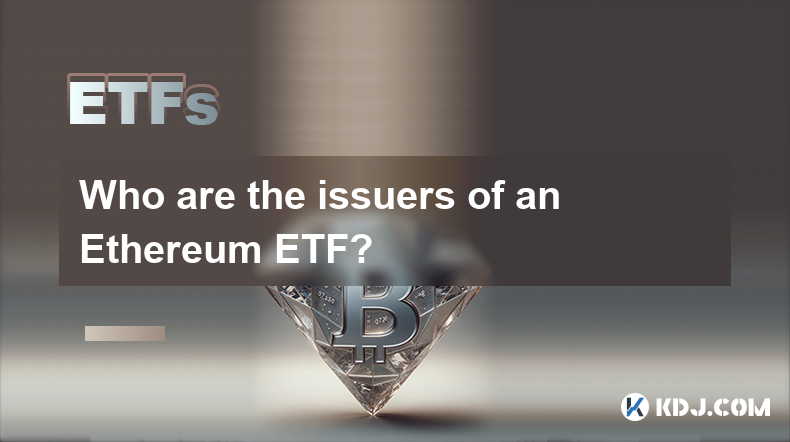
Who are the issuers of an Ethereum ETF?
Mar 19,2025 at 08:07pm
Key Points:There are no currently approved Ethereum ETFs in the US, meaning no single issuer can be definitively named. However, several firms have filed applications.The issuers of potential Ethereum ETFs will be large, established financial institutions, typically asset management companies.The specific requirements for ETF issuers are stringent and o...
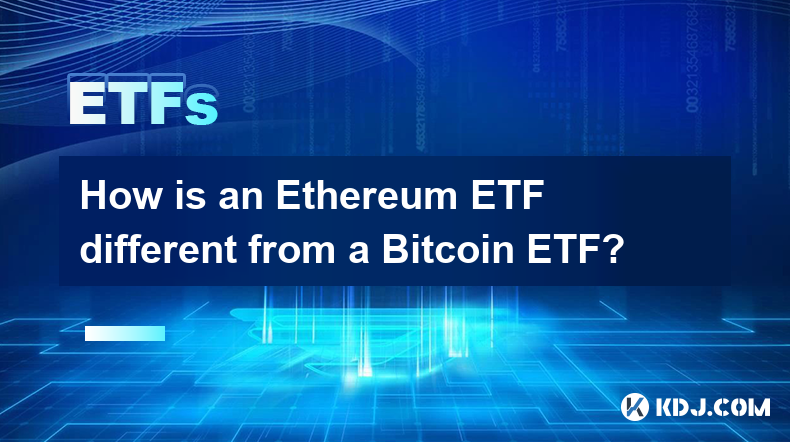
How is an Ethereum ETF different from a Bitcoin ETF?
Mar 17,2025 at 10:55am
Key Points:Underlying Asset: The core difference lies in the underlying asset: an Ethereum ETF tracks the price of Ether (ETH), while a Bitcoin ETF tracks the price of Bitcoin (BTC).Technology and Use Cases: Ethereum's blockchain supports smart contracts and decentralized applications (dApps), creating a distinct technological and investment narrative c...
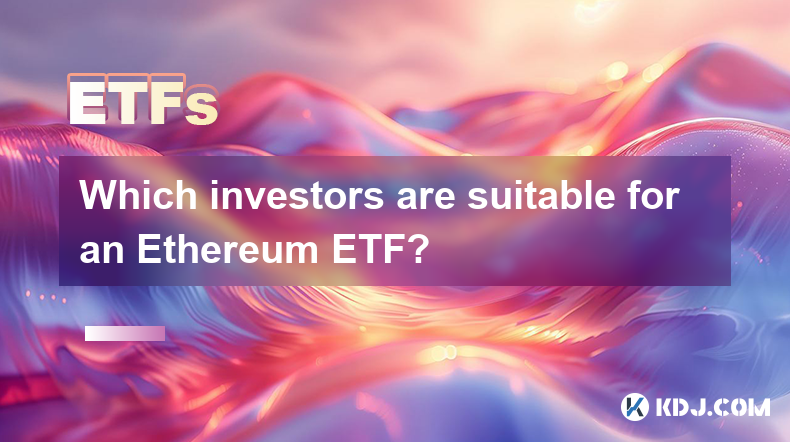
Which investors are suitable for an Ethereum ETF?
Mar 16,2025 at 05:50pm
Key Points:Risk Tolerance: Ethereum ETF investment requires a high risk tolerance due to the volatility of the cryptocurrency market.Investment Goals: Investors seeking long-term growth potential and exposure to the Ethereum ecosystem are suitable candidates.Investment Horizon: A longer-term investment horizon is crucial to weather market fluctuations.U...
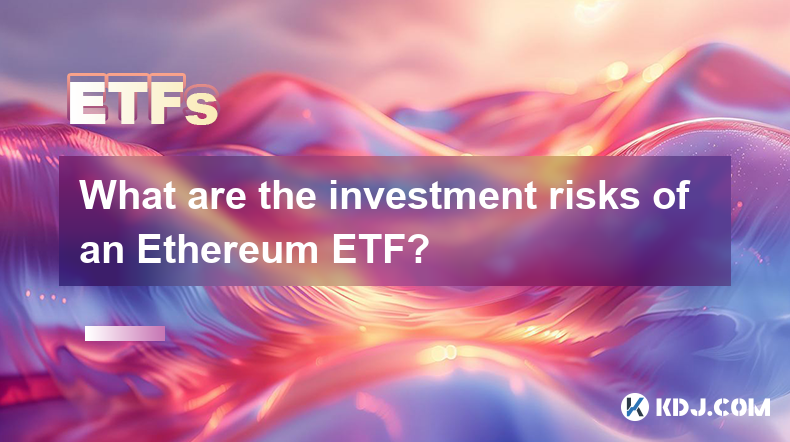
What are the investment risks of an Ethereum ETF?
Mar 18,2025 at 02:12am
Key Points:Price Volatility: Ethereum's price is highly volatile, impacting ETF share prices.Regulatory Uncertainty: Changes in regulatory landscapes can significantly affect ETF trading and performance.Market Manipulation: The potential for market manipulation, particularly in smaller ETFs, exists.Underlying Asset Risk: Risks associated with the Ethere...

What is the long-term investment prospect of an Ethereum ETF?
Mar 18,2025 at 03:01pm
Key Points:Uncertainty surrounds the long-term prospects of an Ethereum ETF due to regulatory hurdles and market volatility.Approval hinges on regulatory clarity regarding cryptocurrencies, especially concerning investor protection and market manipulation.Successful ETF launches could boost Ethereum's price and adoption, but failure could negatively imp...

What are the channels for purchasing an Ethereum ETF?
Mar 18,2025 at 01:49am
Key Points:Currently, there are no Ethereum ETFs available for direct purchase by the general public in most major markets.Access to Ethereum exposure through ETFs is limited, mainly through futures-based ETFs.Purchasing Ethereum directly or through other investment vehicles remains a viable alternative.Regulatory hurdles and market complexities signifi...

Who are the issuers of an Ethereum ETF?
Mar 19,2025 at 08:07pm
Key Points:There are no currently approved Ethereum ETFs in the US, meaning no single issuer can be definitively named. However, several firms have filed applications.The issuers of potential Ethereum ETFs will be large, established financial institutions, typically asset management companies.The specific requirements for ETF issuers are stringent and o...

How is an Ethereum ETF different from a Bitcoin ETF?
Mar 17,2025 at 10:55am
Key Points:Underlying Asset: The core difference lies in the underlying asset: an Ethereum ETF tracks the price of Ether (ETH), while a Bitcoin ETF tracks the price of Bitcoin (BTC).Technology and Use Cases: Ethereum's blockchain supports smart contracts and decentralized applications (dApps), creating a distinct technological and investment narrative c...

Which investors are suitable for an Ethereum ETF?
Mar 16,2025 at 05:50pm
Key Points:Risk Tolerance: Ethereum ETF investment requires a high risk tolerance due to the volatility of the cryptocurrency market.Investment Goals: Investors seeking long-term growth potential and exposure to the Ethereum ecosystem are suitable candidates.Investment Horizon: A longer-term investment horizon is crucial to weather market fluctuations.U...

What are the investment risks of an Ethereum ETF?
Mar 18,2025 at 02:12am
Key Points:Price Volatility: Ethereum's price is highly volatile, impacting ETF share prices.Regulatory Uncertainty: Changes in regulatory landscapes can significantly affect ETF trading and performance.Market Manipulation: The potential for market manipulation, particularly in smaller ETFs, exists.Underlying Asset Risk: Risks associated with the Ethere...
See all articles























































































